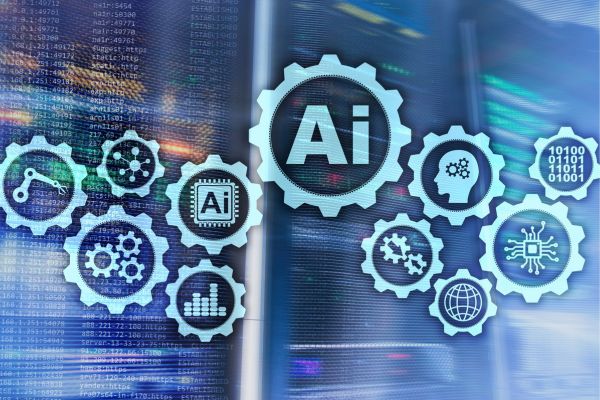Artificial intelligence (AI) is everywhere these days—from smart assistants that answer our questions to algorithms that decide what shows up in our social feeds. But while AI keeps getting more powerful, the conversations around ethical concerns in artificial intelligence are just as important, if not more. Let’s be real: AI isn’t just about cool gadgets or faster decision-making. It’s about how these systems affect our lives, our jobs, and even our understanding of what’s fair.
Why Ethical Concerns in Artificial Intelligence Matter
Think about it—technology has always reshaped the world, but AI feels different. The thing is, AI isn’t just another tool; it learns, adapts, and makes choices. And sometimes, those choices have serious consequences. Whether it’s a hiring algorithm that unintentionally favors certain groups or a self-driving car making a split-second life-or-death decision, ethical concerns in artificial intelligence can’t be brushed aside.
The Bias Problem: When Data Isn’t Neutral
AI runs on data. But here’s the kicker: data reflects the world we live in, and that world isn’t exactly free of bias. If the data is skewed, the AI’s decisions will be skewed too. For example, facial recognition systems have been found to misidentify people of color more often than white individuals. That’s not just a small glitch—it can lead to wrongful arrests or unfair treatment.
So, when we talk about ethical concerns in artificial intelligence, bias is front and center. If AI is meant to make life easier, shouldn’t it at least be fair?
Privacy in the Age of AI
Let’s not pretend our data isn’t out there. Every click, every like, every purchase—AI systems feed on it all. Companies and governments use AI to track behavior, predict actions, and sometimes even manipulate choices. Sounds a little creepy, right? The question is: how much privacy are we willing to trade for convenience?
One of the biggest ethical concerns in artificial intelligence is finding the balance between innovation and intrusion. People deserve to know when their data is being used, and more importantly, how.
Accountability: Who’s to Blame When AI Goes Wrong?
Picture this: an autonomous vehicle causes an accident. Who’s responsible? The car manufacturer? The programmer? The AI itself? This is where things get messy. Unlike traditional tools, AI systems can “learn” in ways their creators never fully predict. That makes accountability a huge challenge.
And let’s be honest—passing the blame from company to coder to machine doesn’t help the victims. A key ethical concern in artificial intelligence is making sure someone is actually held responsible when things go wrong.
Job Displacement: Humans vs. Machines
AI can write, paint, diagnose illnesses, and even drive trucks. That’s amazing, but it also raises some uncomfortable questions about the future of work. Millions of jobs could be automated, leaving people struggling to adapt. Sure, new jobs will be created, but let’s be real—telling someone who just lost their job that they should “learn to code” isn’t a real solution.
When discussing ethical concerns in artificial intelligence, we can’t ignore the human cost. Society has to figure out how to transition workers into new roles without leaving them behind.
The Power Problem: Who Controls AI?
Another issue is control. Right now, AI research and development are largely in the hands of big tech companies. That means a handful of organizations hold massive influence over how AI evolves. And honestly, that concentration of power should make us all a little uneasy.
Ethical concerns in artificial intelligence also touch on democracy, equality, and freedom. If only a few players decide the rules of the game, whose values are really being encoded into these machines?
AI and Human Rights
AI already influences justice systems, border control, and even warfare. Drones, predictive policing, and surveillance AI bring up serious human rights concerns. The question is whether these systems protect people—or put them at risk of abuse.
When ethical concerns in artificial intelligence intersect with basic human rights, the stakes couldn’t be higher. It’s not just about convenience anymore; it’s about dignity, equality, and freedom.
Can We Build Ethical AI?
So, where do we go from here? Some people argue for stronger regulation, while others push for ethical guidelines that developers must follow. Transparency is often suggested as the solution—letting people see how AI makes its decisions. That sounds nice, but in practice, AI is so complex that even experts sometimes struggle to explain it.
Still, it’s worth trying. Building ethical AI isn’t just about avoiding lawsuits or bad press. It’s about creating technology that genuinely benefits people, without hidden costs.
The Role of Everyday People
Now, you might be thinking, “Okay, but I’m not an AI researcher, so what can I do?” The truth is, regular folks have more influence than they think. Demanding transparency, asking hard questions, and supporting policies that protect privacy and fairness are all ways to push for change. Ethical concerns in artificial intelligence shouldn’t just be a conversation among tech giants—it should be a public discussion.
Wrapping It Up
At the end of the day, ethical concerns in artificial intelligence are really concerns about us—our values, our fairness, our future. AI can do incredible things, but without careful oversight, it can also magnify society’s worst flaws. Whether it’s bias, privacy, accountability, or the power gap, these issues need more than quick fixes.
The conversation isn’t just about machines; it’s about what kind of world we want to build. And if we don’t speak up now, we risk letting AI shape that world without us having a say. So yeah, the tech is exciting, but the ethics? That’s the part we can’t afford to ignore.

